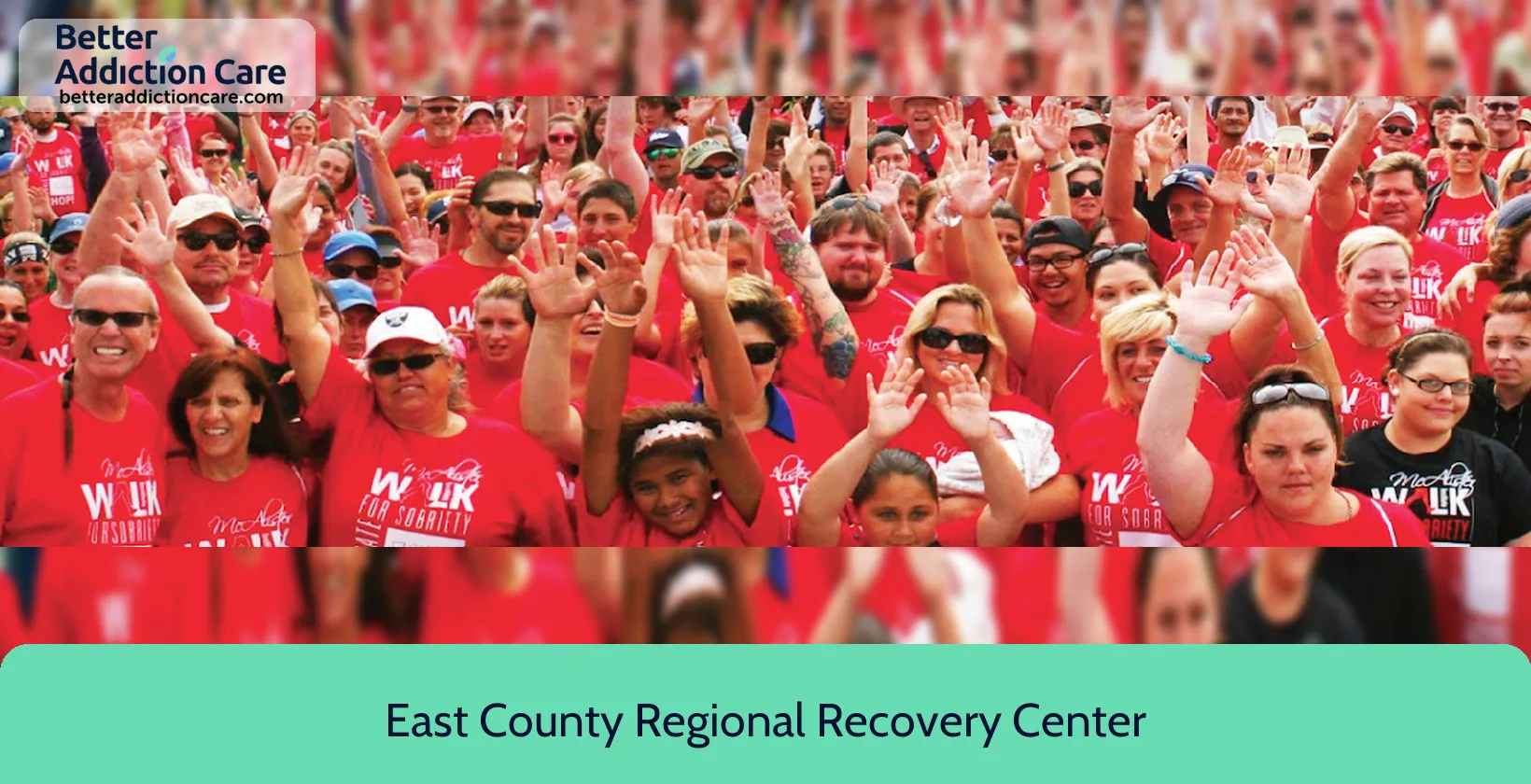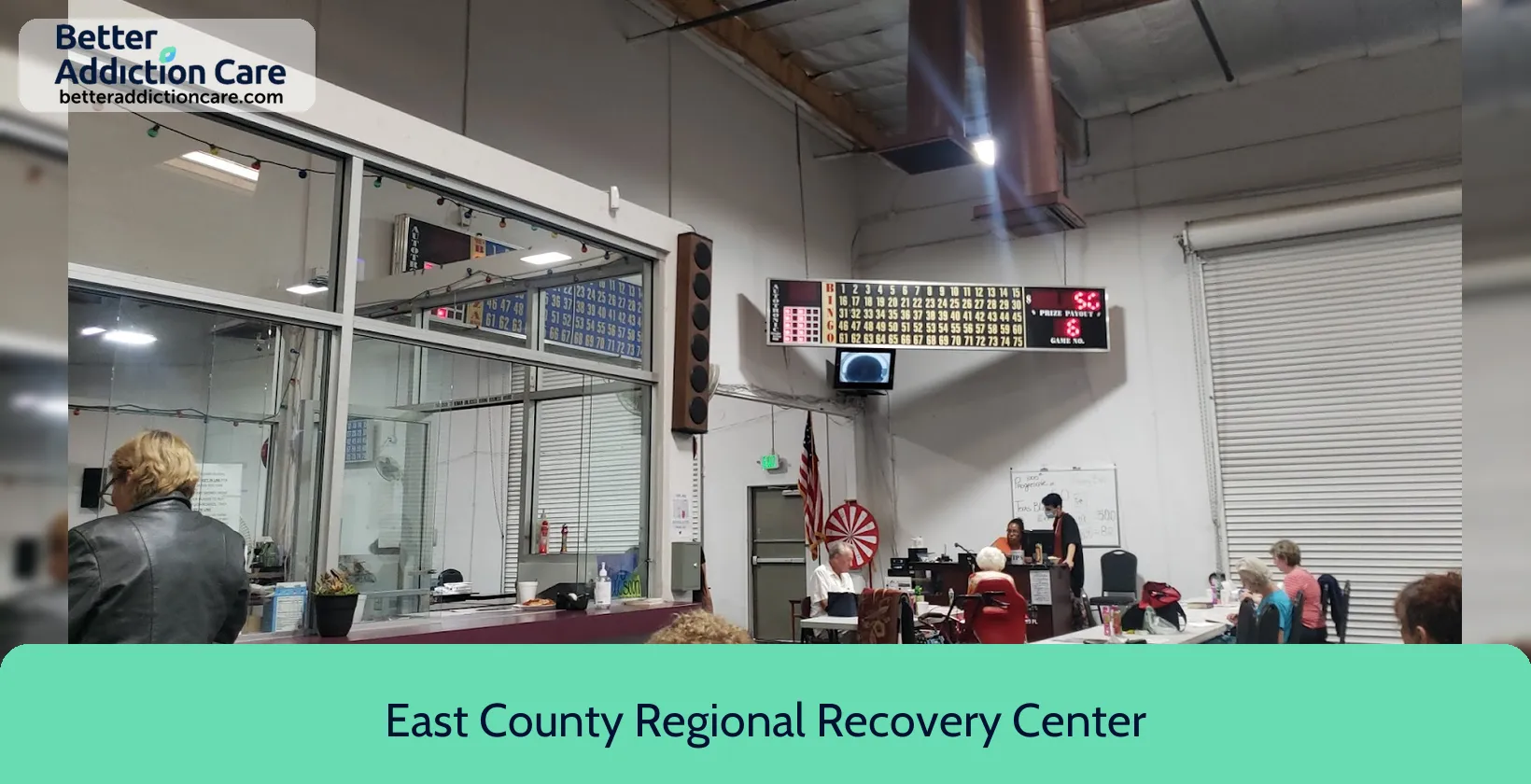East County Regional Recovery Center
Overview
East County Regional Recovery Center is a substance abuse treatment center for people seeking treatment near San Diego County. As part of their treatment modalities for recovery, East County Regional Recovery Center provides family counseling, group counseling, and trauma-related counseling during treatment. East County Regional Recovery Center is located in El Cajon, California, accepting cash or self-payment for treatment.
East County Regional Recovery Center at a Glance
Payment Options
- Cash or self-payment
- Payment assistance (check with facility for details)
- Sliding fee scale (fee is based on income and other factors)
- Medicare
Assessments
- Comprehensive mental health assessment
- Comprehensive substance use assessment
Age Groups
- Adults
- Young adults
Operation
- Private non-profit organization
Highlights About East County Regional Recovery Center
6.62/10
With an overall rating of 6.62/10, this facility has following balanced range of services. Alcohol Rehabilitation: 8.00/10, Drug Rehab and Detox: 6.00/10, Insurance and Payments: 6.00/10, Treatment Options: 6.49/10.-
Alcohol Rehabilitation 8.00
-
Treatment Options 6.49
-
Drug Rehab and Detox 6.00
-
Insurance and Payments 6.00
Treatment At East County Regional Recovery Center
Treatment Conditions
- Mental health treatment
- Alcoholism
- Opioid Addiction
- Substance use treatment
- Co-occurring Disorders
Care Levels
- Intensive outpatient treatment
- Detoxification
- Outpatient
Treatment Modalities
- Family counseling
- Group counseling
- Trauma-related counseling
- Individual psychotherapy
- Cognitive Behavioral Therapy
Ancillary Services
Languages
- Spanish
Special Programs
- Clients with HIV or AIDS
- Pregnant/postpartum women
- Clients who have experienced trauma
Contact Information
Read our Most Recent Article About Drug Addiction
DISCLAIMER: The facility name, logo and brand are the property and registered trademarks of East County Regional Recovery Center, and are being used for identification and informational purposes only. Use of these names, logos and brands shall not imply endorsement. BetterAddictionCare.com is not affiliated with or sponsored by East County Regional Recovery Center.










